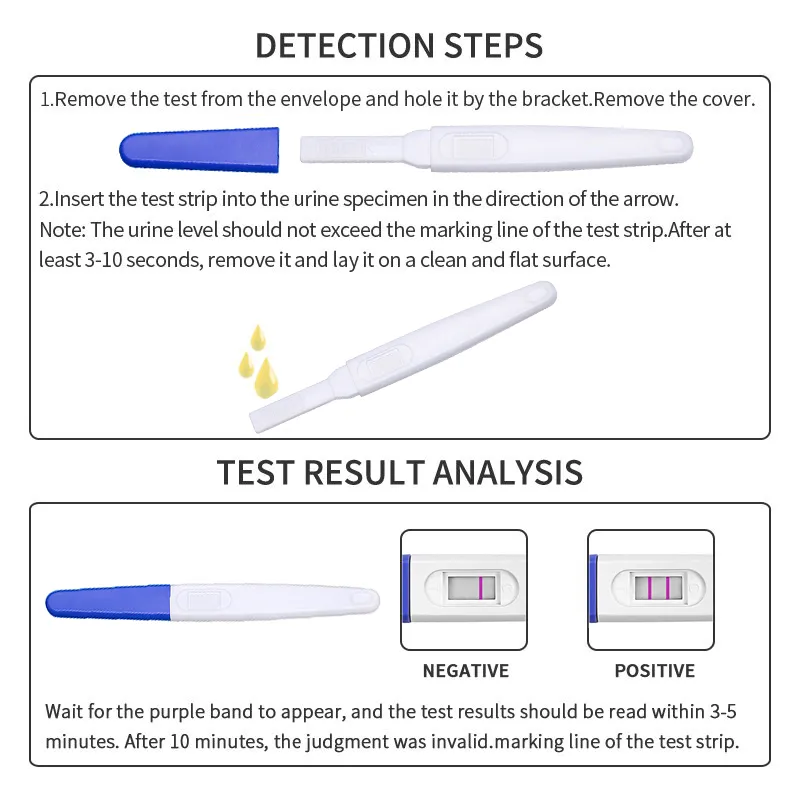Nov . 30, 2024 12:04 Back to list
Reliable Supplier for One Step HCG Pregnancy Tests with High Accuracy and Quality
Understanding hCG One Step Pregnancy Test Suppliers
Pregnancy tests play a crucial role in reproductive health, allowing individuals and couples to determine if conception has occurred. Among the various types of pregnancy tests available on the market, the hCG (human chorionic gonadotropin) one step pregnancy test has gained significant popularity due to its ease of use and reliability. This article explores what hCG one step pregnancy tests are, how they work, and what to look for in suppliers of these tests.
What is an hCG One Step Pregnancy Test?
The hCG one step pregnancy test is a type of home pregnancy test designed to detect the presence of the hormone human chorionic gonadotropin in urine. This hormone is produced by the placenta shortly after a fertilized egg attaches to the uterine lining, typically around six days after conception. By the time a missed period occurs, hCG levels are usually high enough to be detected by these tests.
The one step aspect of the test means it's straightforward to use. Most tests feature a dipstick or cassette format, which requires no additional mixing or preparation. Users simply expose the test strip to urine, wait for a few minutes, and then read the results. The convenience and reliability of these tests have made them a staple in many households.
How Does It Work?
The hCG one step pregnancy test operates on a simple principle of immunoassay. When urine is applied to the test strip, it travels along the strip via capillary action. If hCG is present in the urine, it binds to specific antibodies coated on the test strip. This binding triggers a reaction that produces a visible line or color change, indicating a positive result.
Most hCG tests include a control line that appears regardless of whether a pregnancy is present. This line serves as a verification that the test has functioned properly. A missing control line, even if the test is positive, may indicate a faulty test and suggests the need for a retest.
Choosing a Supplier for hCG One Step Pregnancy Tests
When looking for suppliers of hCG one step pregnancy tests, quality is paramount. Here are several factors to consider
hcg one step pregnancy test supplier

1. Regulatory Compliance It’s essential to choose suppliers who adhere to regulatory guidelines, such as those set by the FDA or equivalent authorities in your country. This ensures that the tests meet safety and efficiency standards.
2. Quality Assurance Look for suppliers that provide quality assurance certifications. This not only indicates that the tests are reliable but also builds trust in the product's performance.
3. Reviews and Reputation Researching the supplier’s reputation through customer reviews and testimonials can provide insight into the effectiveness of the product. A trusted supplier will often have a strong track record of customer satisfaction.
4. Variety of Products Suppliers that offer a range of products may be more reliable. This implies they have the capacity to cater to different needs, be it private label options, bulk purchasing, or specialized testing kits.
5. Customer Support Good suppliers typically offer customer support to assist with any inquiries or issues related to their products. Check if they have a responsive customer service team that can help before and after a purchase.
6. Affordability Competitive pricing is important, but be cautious of prices that seem too good to be true. They may indicate lower quality or ineffective tests. Balance cost with quality for the best results.
7. Shipping and Delivery Assess the supplier's shipping options. Depending on your location, you may require expedited shipping, especially for personal use or to avoid delays in confirming a pregnancy.
Conclusion
The hCG one step pregnancy test is an invaluable tool for anyone wishing to determine pregnancy quickly and efficiently. Selecting a reliable supplier is crucial for ensuring that you receive high-quality tests that provide accurate results. By considering factors such as regulatory compliance, product quality, and customer service, you can find a reputable source for hCG pregnancy tests. As advancements in technology continue, these tests will likely become even more accessible and reliable, further empowering individuals in their reproductive health journeys.
-
Reliable Early Pregnancy Test Kit Supplier - Multi Plastic Cassette Options
NewsJul.30,2025
-
Transferrin Rapid Test Cassette – Reliable Tumor Marker Detection
NewsJul.29,2025
-
Accurate Follicle Stimulating Hormone Test Kit | Rapid Reliable Results
NewsJul.29,2025
-
High Accuracy LH Ovulation Test Kit - Digital Results & Wholesale Options
NewsJul.29,2025
-
HbsAg Blood Rapid Test Kit for Fast & Accurate Hepatitis B Detection
NewsJul.28,2025
-
Sterile Urine Cup for Safe & Easy Collection | High-Quality Specimen Cups
NewsJul.28,2025

